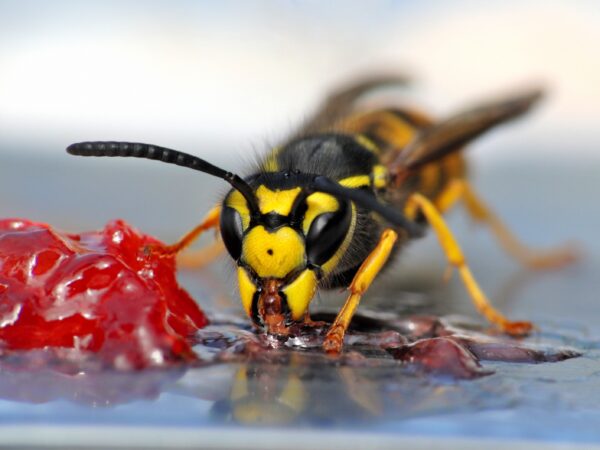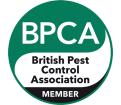
Call 0333 567 2020 for advice and quotes or contact us online
Understand Wasp Behaviour
Wasps tend to be not aggressive unless provoked, but in the late summer months shifts in their diet pattern and the breakdown of the social structure of the colony changes their behaviour.

In spring, wasps are busy rearing their young wasp larvae and expanding the colony. Worker wasps hunt for insects, such as spider and aphids, to feed their larvae. And in return, adult wasps feed on the sugary secretion made by the larvae.
Later in the year, wasps have to find other sources of sugar when the nest is at maximum capacity and there are no larvae to raise. This is often feeding on over ripe fruit and to our annoyance human food – outdoor meals become a target for wasps in the warm weather. To add to the hazard of wasps being attracted to sugar-rich foods and drinks, they become slightly inebriated after feeding on fermented and processed sugars. This makes them more likely to sting you.
Overcrowding or high temperatures in a wasp nest can also result in an irritable behaviour in wasps. On average, a wasp nest is a few degrees warmer than the outside temperature – be cautious if you are near a wasp nest on a hot day. Read our article on "How To Get Rid of A Wasp Nest" for further details.
If you have a wasp problem then take a look at our wasp nest removal service.
Author: NBC Environment/Orkin






















